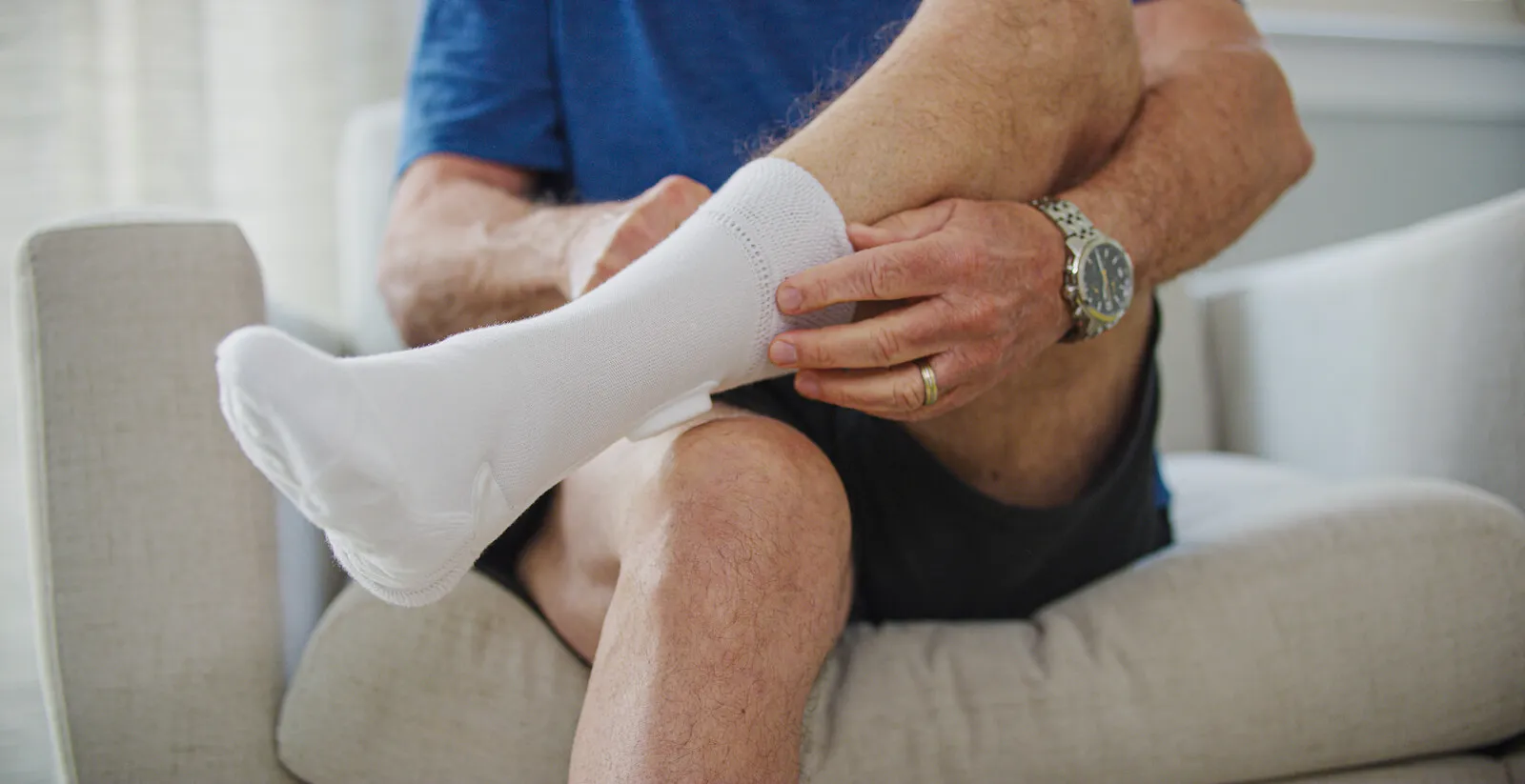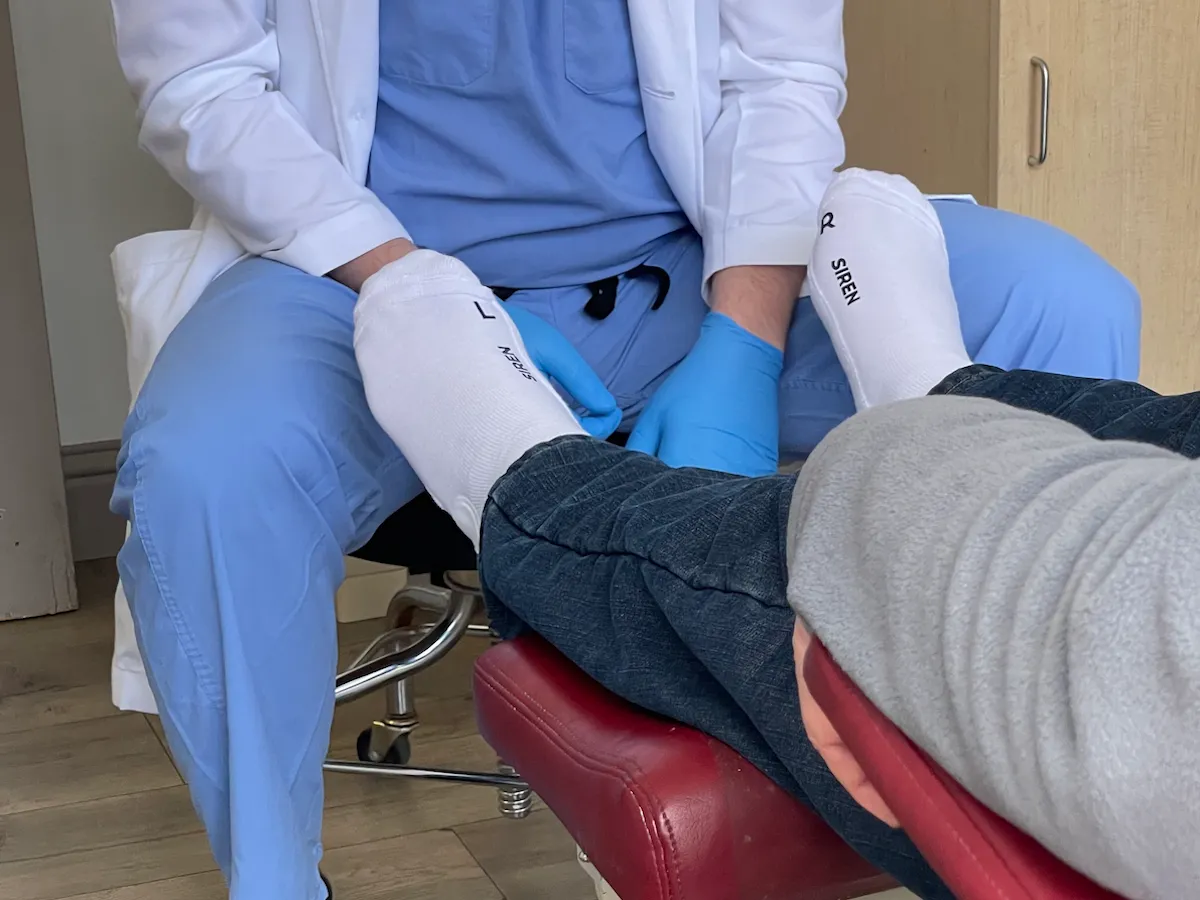Shingles is a viral disease that causes a painful, localized skin rash and affects as many as one in three adults. Should people with diabetes be particularly concerned about this common condition? Research suggests there is an increased risk of developing shingles and experiencing severe symptoms. Here's what you should know about shingles.
How is Shingles Contracted?
Shingles is caused by the varicella-zoster virus (VSV), the same virus responsible for chickenpox. After someone gets chickenpox, VSV remains dormant in the body for many years. Later in life, the virus may become reactivated and cause a shingles outbreak.
Shingles is not contagious, meaning you cannot be infected by someone with an active case. However, anybody who has not had chickenpox (or the chickenpox vaccine) is at risk of contracting chickenpox from somebody with an active shingles outbreak.
If you have shingles, avoid contact with anybody who is not vaccinated for chickenpox, has never had a chickenpox infection, or has a weakened immune system.
Signs & Symptoms
Shingles causes a painful, blistery rash that forms on one side of the body or face. People often experience pain, itching, and tingling on the skin up to a week before the rash appears. Blisters form within the rash and scab over after seven to 10 days. The rash will typically clear up within two to four weeks.
Other symptoms of shingles may include, fever, headache, chills, and an upset stomach. In rare cases, shingles may cause pneumonia, damage to the eyes or ears, or life-threatening swelling in the brain (encephalitis).
People with diabetes are at an increased risk of developing shingles and suffering from complications.
Nerve Pain
Shingles is often associated with severe nerve pain known as postherpetic neuralgia (PHN), which may affect one in five people who become infected. This pain is located around the site of the rash and may continue for weeks or months after the rash has disappeared. In some very severe cases, PHN can continue for many years and impact day-to-day life.
A growing body of evidence suggests that people with diabetes are at an increased risk of suffering from PHN and may experience more severe pain than individuals without diabetes.
Blood Sugar Control
People with diabetes may have difficulty managing their blood glucose levels while infected with shingles. One study conducted in Spain found that nearly a quarter of participants with well-controlled diabetes saw a significant increase in their A1C—a blood test that measures average blood sugar levels over a three-month period—after a shingles outbreak.
If you have diabetes and think you may be developing shingles, notify your doctor right away so you can come up with a plan for managing your blood sugar. Some adjustments to your medications may be necessary.
Treatment
Although there is no cure for shingles, there are treatments available to manage symptoms until the rash resolves on its own.
An outbreak may be treated with prescription antiviral medication. This medication may shorten the length of a shingles attack and reduce the risk and severity of pain associated with postherpetic neuralgia. Antiviral medications are most effective if started within three days of the onset of symptoms, so notify your doctor as soon as you suspect a shingles outbreak.
Over-the-counter pain relievers may provide some relief from symptoms. Additionally, topical lidocaine cream, calamine lotion, and oatmeal baths can help alleviate itching around the rash.
Prevention
Vaccination is the most effective way to protect one's self from shingles, particularly for people with diabetes, who are at greater risk of complications than the general population. The shingles vaccine is given in two doses and is over 90% effective at preventing an outbreak. Shingrix is the newest shingles vaccine available in the United States, and is recommended by the CDC for anybody:
- Over the age of 50
- Previously vaccinated for shingles with the Zoster live vaccine
- With a chronic health condition such as diabetes, renal failure, rheumatoid arthritis, or COPD
- On a mild immunosuppressant medication
If you are severely immune-compromised, talk with your doctor before receiving the shingles vaccine.


